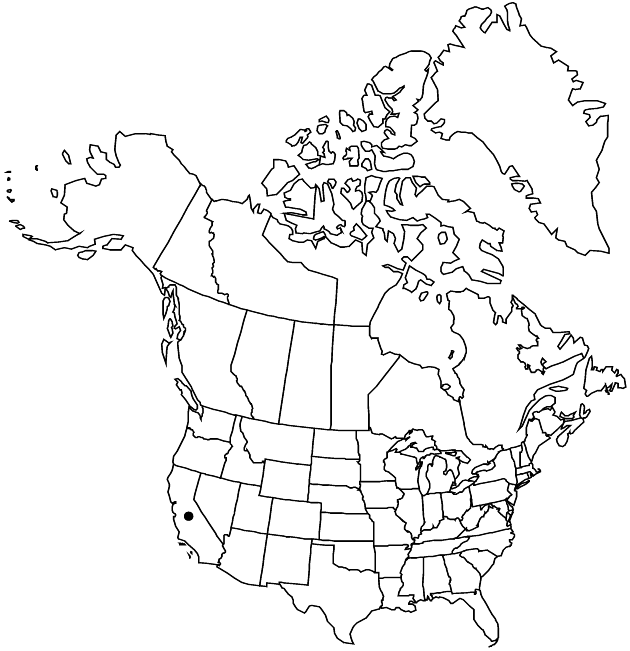Difference between revisions of "Brickellia knappiana"
Pittonia 1: 260. 1888.
imported>Volume Importer |
imported>Volume Importer |
||
| Line 54: | Line 54: | ||
|publication year=1888 | |publication year=1888 | ||
|special status=Endemic;Conservation concern | |special status=Endemic;Conservation concern | ||
| − | |source xml=https:// | + | |source xml=https://bitbucket.org/aafc-mbb/fna-data-curation/src/2e0870ddd59836b60bcf96646a41e87ea5a5943a/coarse_grained_fna_xml/V19-20-21/V21_1270.xml |
|tribe=Asteraceae tribe Eupatorieae | |tribe=Asteraceae tribe Eupatorieae | ||
|genus=Brickellia | |genus=Brickellia | ||
Latest revision as of 20:09, 5 November 2020
Shrubs, 100–200 cm. Stems (arching) branched from near bases, gland-dotted. Leaves alternate; petioles 4–5 mm; blades 3-nerved from bases, lance-ovate to lanceolate, 10–35 × 1–16 mm, bases acute to attenuate, margins dentate to serrate, apices acute to acuminate, faces densely gland-dotted and sparsely pubescent (not shiny). Heads in paniculiform arrays. Peduncles 2–5 mm, densely glandular-pubescent. Involucres cylindric to narrowly campanulate, 6–9 mm. Phyllaries 18–22 in 5–7 series, greenish, 3–4-striate, unequal, margins scarious (apices acute to acuminate); outer lance-ovate (sparsely puberulent, gland-dotted), inner lanceolate (glabrous). Florets 5–7; corollas white, 5–6.5 mm. Cypselae 2.5–3, puberulent to sparsely pubescent; pappi of 28–32 white, barbellulate bristles.
Phenology: Flowering Sep–Oct.
Habitat: Gravelly washes
Elevation: 700–1700 m
Discussion
Of conservation concern.
Brickellia knappiana is found only in the mountains of eastern California. It is noted as a possible hybrid between B. californica and B. multiflora. Collections from mixed populations of B. knappiana and B. californica have been noted on herbarium specimens.
Selected References
None.
